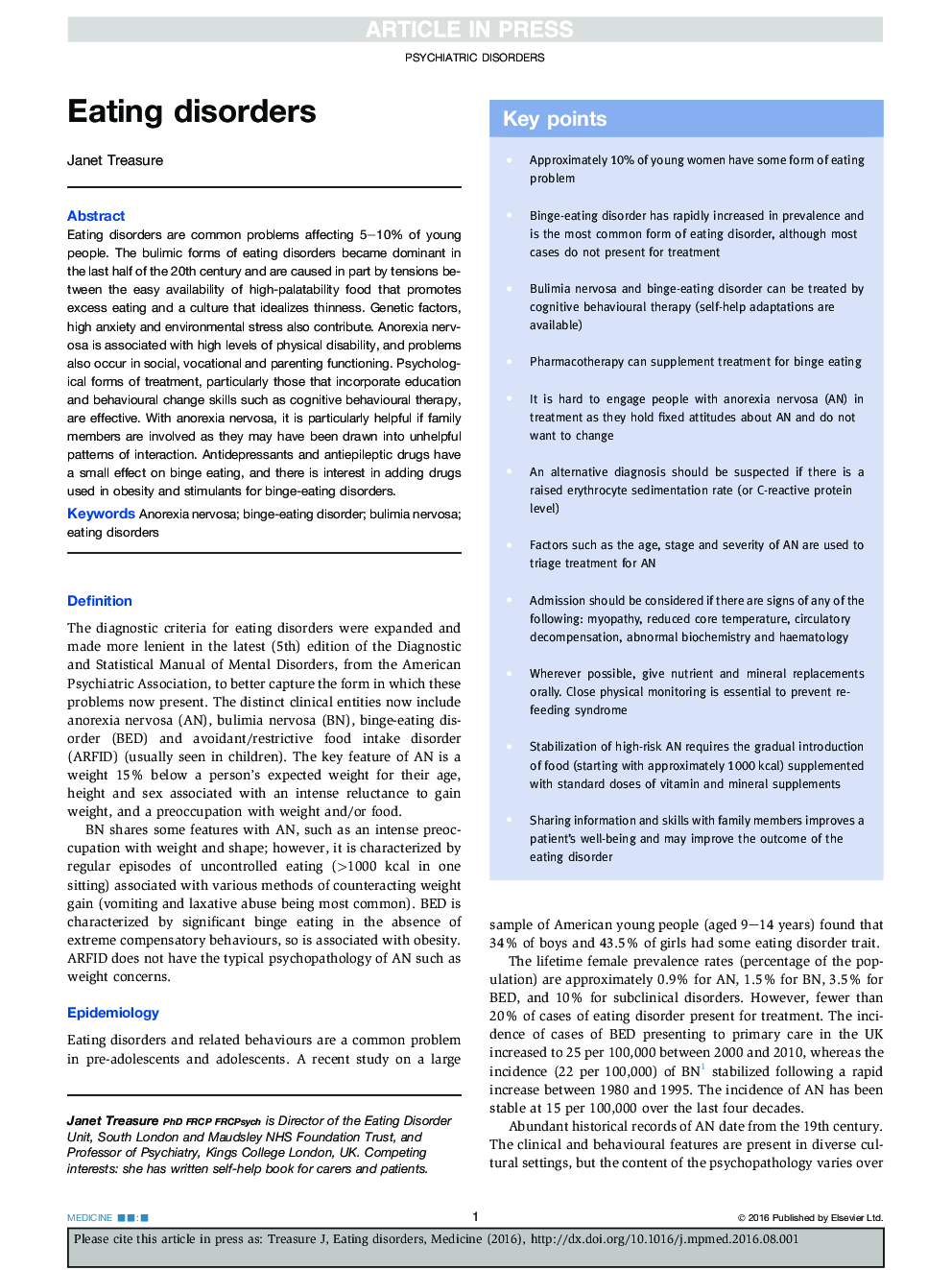| Article ID | Journal | Published Year | Pages | File Type |
|---|---|---|---|---|
| 5681331 | Medicine | 2016 | 7 Pages |
Abstract
Eating disorders are common problems affecting 5-10% of young people. The bulimic forms of eating disorders became dominant in the last half of the 20th century and are caused in part by tensions between the easy availability of high-palatability food that promotes excess eating and a culture that idealizes thinness. Genetic factors, high anxiety and environmental stress also contribute. Anorexia nervosa is associated with high levels of physical disability, and problems also occur in social, vocational and parenting functioning. Psychological forms of treatment, particularly those that incorporate education and behavioural change skills such as cognitive behavioural therapy, are effective. With anorexia nervosa, it is particularly helpful if family members are involved as they may have been drawn into unhelpful patterns of interaction. Antidepressants and antiepileptic drugs have a small effect on binge eating, and there is interest in adding drugs used in obesity and stimulants for binge-eating disorders.
Related Topics
Health Sciences
Medicine and Dentistry
Medicine and Dentistry (General)
Authors
Janet Treasure,
